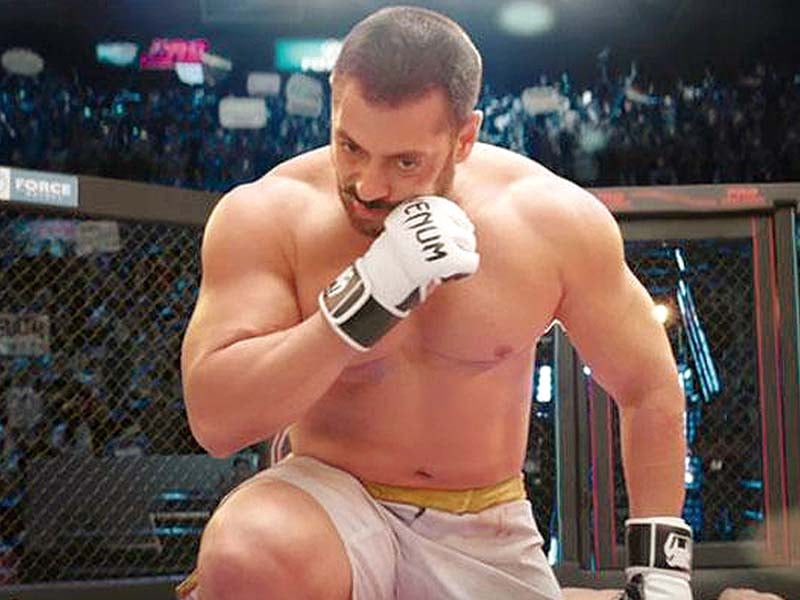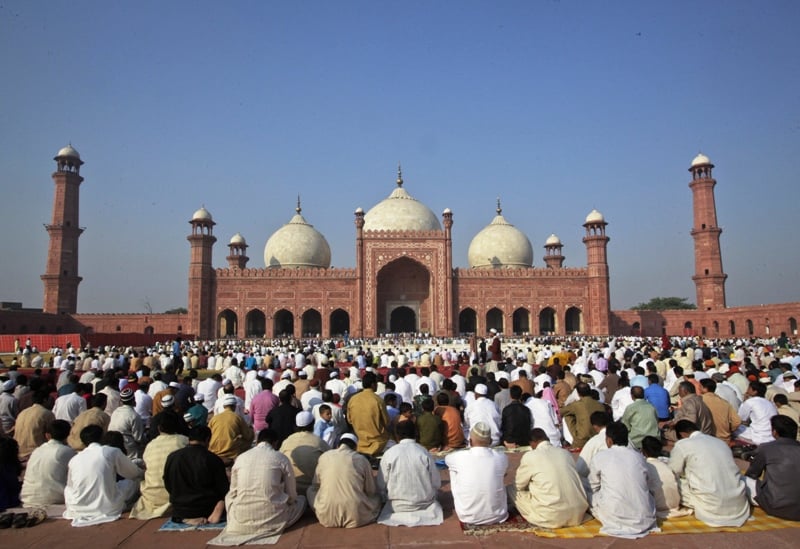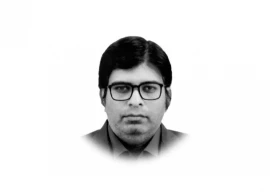
I, however, was late to the party. I watched Sultan on the Wednesday after Eid and my logic (read: excuse) was to let the Eid crowd be swept away by post-holiday life.
Ironically, nothing much had changed. The claps, the cheers and the whistles in this relatively posh multiplex reminded me of watching Billu Barber at Prince Cinema. For a moment, the commotion got to be and I began to regret the decision of watching the film. But then came Salman, actually acting and not putting up an act about being able to act. I couldn’t believe my eyes seeing the man who never wore his shirt back after throwing it away in O O Jaane Jana, wear a sweater and work his facial muscles for a change. He was neither as bipolar as Chulbul Panday nor as mechanical as the Bodyguard. He was just another man on the street, capable of performing miracles in everyday things, which in itself was one.
Will Sultan become India's highest grossing film ever?
It wasn’t long before I ended up rising above the clichés associated with Salman’s recent spree of Eid blockbusters and joined the crowd in the congregational experience that we call cinema. We cheered, laughed and cried, for this was a great piece of storytelling, one that keeps you on the edge of your seat by offering a consistent dose of dramatic highs and lows. This film is certainly not about Salman flirting with the idea of letting fat goons and item girls get a piece of the limelight.

Just when Sultan was about to prove me wrong in saying that great films and mainstream Bollywood simply cannot go hand-in-hand, I had a sigh of relief, my intuition was right. If you haven’t seen the film as yet, this is the part where you should stop reading.
Keeping up with tradition, the film and the protagonist both come crashing down, face first, in the third act. The needless extension of plot and the mandatory Rahat Fateh Ali Khan song hit you with an uppercut. It takes you more time to digest the fact that the director has decided to add yet another fight to the film that has already ended, than it takes Salman to recover from broken ribs for the final showdown.
‘Real-life Sultan’ files case against Salman Khan
It’s almost as if the producer, or who knows maybe Salman himself, sneaked up to Ali Abbas Zafar, who was busy piecing together his finest work yet, and said, “It cannot be so subtle and morally well-aligned. Lets screw it up a little and show Salman without his shirt for one last time.”
The film starts out by saying that girls should be allowed to chase their dreams and ends up submitting to the hyper-masculine archetype. It might still take a while to achieve gender equality in the real world but with a fictional account like Sultan, there was ample room to empower Anushka Sharma’s character, if not physically than emotionally, but the director seems to have skirted every opportunity quite tactfully.
The protagonist’s second coming may have been triggered by him falling from grace in the eyes of his beloved, but he does not end his journey with winning back her love. Instead, he ends up feeding his ego, ironically, with support from the same woman who advised him against doing that, all throughout. As expected, the power structure remains intact. Salman emerges as the hero and Anushka nothing more than the personification of a shattered dream.
This is why I still believe that great cinema and mainstream Bollywood stand poles apart from one another.
Sultan may have been Salman’s most powerful performance but Bajrangi Bhaijaan will remain his most well-thought-out film.
Published in The Express Tribune, July 15th, 2016.
Like Life & Style on Facebook, follow @ETLifeandStyle on Twitter for the latest in fashion, gossip and entertainment.























COMMENTS
Comments are moderated and generally will be posted if they are on-topic and not abusive.
For more information, please see our Comments FAQ